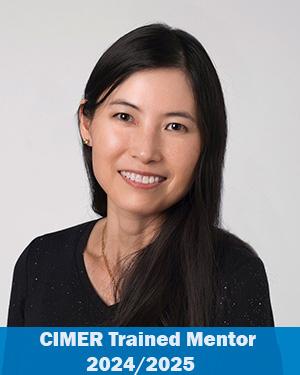Research News
03/24/2020
Department of Defense Awards $2.4M for Bladder Cancer Immunotherapy Research
Drs. Mian, Gupta and Hwang—a multi-disciplinary team of researchers and clinicians—will look for ways to optimize immune checkpoint inhibitor therapy, including testing novel combinatory treatments and identifying predictive biomarkers of treatment response

Cleveland Clinic is one of the highest volume centers of excellence for bladder cancer research and care in the nation. With a new $2.4 million Translational Team Science Award from the Department of Defense (DoD), physician-scientist and project lead Omar Mian, MD, PhD—as well as partnering investigators Shilpa Gupta, MD, and Tae Hyun Hwang, PhD, and a team of talented collaborators—look to not only bolster Cleveland Clinic’s bladder cancer program, but also its rapidly expanding portfolio of immuno-oncology research.
A class of drugs called immune checkpoint inhibitors have emerged as a promising immunotherapy approach for treating a host of cancers, including of the bladder—the fourth most commonly diagnosed cancer in the Veterans Administration Health System.
Opportunities in checkpoint inhibitor therapy
Immune checkpoints are signaling proteins found on the surface of T-cells that function like on and off switches. When these switches are “turned on,” they signal the immune system to attack abnormal cells or foreign invaders. When they are turned off, they help maintain immune system homeostasis.
Cancer cells send signals that interfere with T-cells’ ability to sense whether they should be on or off, sometimes “tricking” the immune cells and preventing the body from mounting its normal defenses. Immune checkpoint inhibitors restore T-cells’ ability to activate in the face of cancer cells’ confusing signals.
While these drugs can be effective for some patients, they currently have a success rate of only about 20 percent in those with metastatic disease. With this award, Dr. Mian and team—including Dr. Gupta, a medical oncologist and bladder cancer clinical trialist in Taussig Cancer Institute, and Dr. Hwang, a computational biologist in the Department of Quantitative Health Sciences—are taking a fully integrated team approach to improving checkpoint inhibitors’ efficacy in bladder cancer.
Are novel combinatory treatments a possible answer?
Some of the most well studied and commonly targeted checkpoint proteins are CTLA-4, PD-1 and PD-L1.
Lily Wang, PhD, a collaborating researcher on the grant, identified VISTA as an important one, as well. In addition to controlling T-cell activation, previous studies from her lab revealed that VISTA also helps to regulate the activity of myeloid-derived suppressor cells (MDSCs)—a diverse class of cells that can suppress the immune system.
Claudia Diaz-Montero, PhD, an immunologist, and Moshe Ornstein, MD, a DoD-funded genitourinary solid tumor oncologist with expertise in the biology of MDSCs and their role in bladder cancer, will be important partners in this basic discovery effort, while Byron Lee, MD, PhD, a urologic oncologist and physician-scientist studying the epigenetic drivers of bladder cancer, will help support the translational efforts.
Considering that roughly 4 in every 5 metastatic patients who are treated with immune checkpoint inhibitors will not respond, Dr. Mian says that improving treatment success will require a multi-pronged approach. “In addition to investigating novel combination therapies, our team will also look for ways to better discern which bladder cancer patients are the best candidates for checkpoint inhibitors,” commented Dr. Mian.
Optimizing checkpoint inhibitors for the optimized patient
“The guiding principle of personalized medicine is making sure that each patient is treated with the intervention most appropriate for them. If we can determine what patient characteristics are associated with treatment success—whether that be a person’s genetics, tumor composition or other pathologies, for example—we can make sure we are delivering immune checkpoint inhibitor therapy to the right patients, and thereby increase the likelihood of treatment success.”
The researchers will retrospectively analyze data from a previous clinical trial of checkpoint inhibitors led by Dr. Gupta and compare how subsets of MDSCs differ between bladder cancer patients who responded well to the drugs versus those who did not. In addition to elucidating which specific cell types play the greatest role in treatment response and resistance, the team is hopeful this subproject will reveal an immune cell signature that may help oncologists to predict which patients are likely to be “responders” or “non-responders” to checkpoint inhibitors.
Guided by Dr. Hwang’s expertise in using artificial intelligence for predictive modeling, the team also seeks to develop a machine and deep learning-based predictive model that integrates clinical, biological and genomic data to forecast how individual patients will respond to checkpoint inhibitors. They will test the model’s accuracy by comparing the model-generated predictions against biological data and clinical outcomes from bladder cancer patients previously treated with checkpoint inhibitors.
Together, Drs. Gupta and Hwang say they are hopeful the insights gained from these projects will help oncologists predict not just who will respond well to immune checkpoint inhibitors, but how.
The value of team science
“We are so excited to begin these projects. By bringing together a team of multi-disciplinary researchers and care providers—whose expertise spans basic, translational and clinical research, as well as traditional wet lab and next-generation computational research—I think we are well poised to make important inroads in enhancing and optimizing treatment for those living with bladder cancer, including military service members and veterans,” said Dr. Mian.
Dr. Mian is jointly appointed in Lerner Research Institute, Department of Translational Hematology & Oncology Research, and Taussig Cancer Institute, Department of Radiation Oncology, and a member of the Cleveland Clinic Genitourinary Malignancies Research Center.
Featured Experts
News Category
Related News
Want To Support Ground-Breaking Research at Cleveland Clinic?
Discover how you can help Cleveland Clinic save lives and continue to lead the transformation of healthcare.
Give to Cleveland Clinic